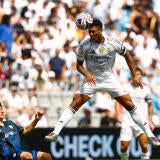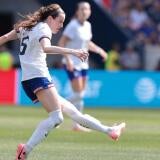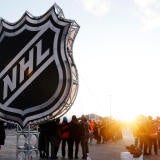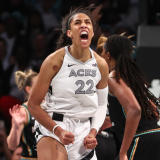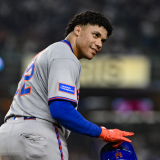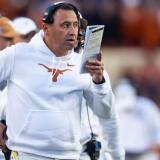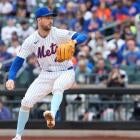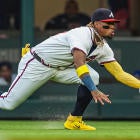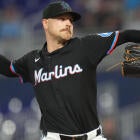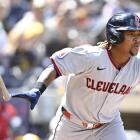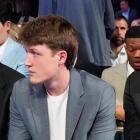NASCAR betting guide 2025: How to bet on NASCAR online
Learn how you can bet on NASCAR with top sportsbooks. Find trusted NASCAR betting sites and learn how to start betting on NASCAR today
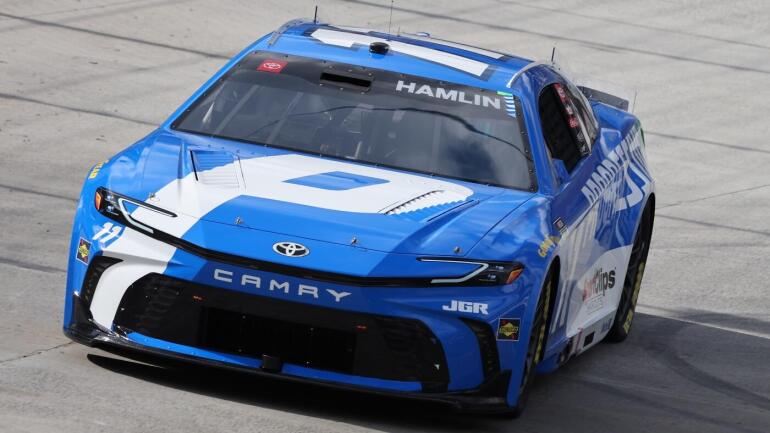
Whether you're a hardcore race fan or just tuning in for some of motorsports' major events, this page will feature a complete and comprehensive guide to NASCAR betting. If you're new to betting and looking to learn how to bet on NASCAR, our guide will tell you what you need to know.
Best NASCAR betting sites
Finding the best NASCAR sportsbook
Sports betting apps offer large catalogs with various ways to bet on NASCAR. Major brands like FanDuel, DraftKings, BetMGM, Caesars, Fanatics and bet365 also offer sportsbook promos that can be used for NASCAR betting online.
Here are some of the best NASCAR betting sites:
| Sportsbook | Bonus offer | Promo code |
|---|---|---|
FanDuel | Bet $5. Get $150 in bonus bets if you win | No code required |
DraftKings | Bet $5, Get $150 in bonus bets instantly | No code required |
BetMGM | Up to $1,500 in bonus bets back if your first bet loses | CBSSPORTS |
Fanatics | Bet and Get up to $1,000 in No Sweat Bets | No code required |
bet365 | Bet $5, Get $150 in bonus bets win or lose | CBSBET365 |
Caesars | Bet $1, double your winnings your next 10 bets | CBSDYW |
Finding the best NASCAR odds on betting apps
Using multiple NASCAR betting apps is very useful, considering that one may find either more opportunities to bet or more advantageous odds at one sportsbook compared to another.
For example, DraftKings may set Ross Chastain's odds of winning at +1800, but Fanatics may set it at +1900. Odds can vary across sportsbooks and betting markets.
Seeking out the most favorable odds is a basic but strong opportunity to capitalize on your knowledge of NASCAR. It is the fastest way to increase your potential payouts.
What NASCAR odds mean
Generally, each driver in each week's NASCAR Cup Series race is given a set of odds by sportsbooks of achieving a certain finishing position. For example, Kyle Larson's chances of winning may be set at +450, with his odds of a top-three finish set at +130, his odds of a top-five finish set at -175, and his odds of a top-10 finish set at -500.
Using this example, a $100 bet on Larson to win the race would pay $550 ($450 in profit, plus the initial $100 bet) should he score the victory. By contrast, you would have to bet $175 on Larson's chances of finishing in the top five in order to make a $100 profit (plus a return of the original $175 wager).
Betting on a longshot offers the potential for far greater profits in the event that a certain scenario actually unfolds. For instance, J.J. Yeley's odds of winning may be set at +100000, with his odds of a top-three finish at +25000, his odds of a top-five finish at +10000, and his odds of a top-10 finish at +2800. In this case, if you were to bet $100 on a Yeley win, you would receive a staggering $100,100.
Be advised, however, that equipment is a major variable in NASCAR betting, and drivers with the longest odds may not be in cars capable of winning or running beyond the middle or back of the pack from week to week. Discrepancies in equipment are usually not as pronounced at tracks where the equalizer of the draft comes into play, such as Daytona, Talladega and Atlanta, and these tracks are usually better opportunities to bet on longshots. For example, a bettor once won nearly $1 million on a $13 four-leg parlay in which they bet that Cody Ware, B.J. McLeod, Landon Cassill and David Ragan would all earn top-10 finishes in a race at Daytona in August 2022.
Types of NASCAR bets
As we just went over, the most common type of NASCAR odds are outright odds, namely when it comes to picks to win. But there's more than just one way to bet on NASCAR online.
NASCAR prop bets
Many NASCAR sportsbooks offer driver prop bets, which can be split between head-to-head matchups and groups of drivers. For instance, you can bet that either Chase Elliott (-110) or Bubba Wallace (-125) will have a better finishing position, or you can bet that Tyler Reddick (+280) will have the best finishing position out of a group that also includes Kyle Larson (+190), Ryan Blaney (+300) and Denny Hamlin (+300).
Along with driver props, there are also race props to wager on. The most prominent race prop is betting on which manufacturer—Chevrolet, Ford or Toyota—will win the race. From there, you can also bet which Chevrolet driver, Ford driver or Toyota driver will be the highest finisher among those driving the same make of car. Race props now also include odds for which driver will set the fastest lap in a race, which is now worth a bonus point towards the NASCAR championship standings beginning in 2025.
NASCAR futures betting
In addition to race lines and odds from week to week, NASCAR betting also includes futures betting, namely on which driver will win the championship at the end of the season. Most sportsbooks will offer odds for the NASCAR Cup Series championship, as well as the championship in the Xfinity Series and Craftsman Truck Series—the two other national touring series that serve as the support races to Cup events.
For example's sake, a three-race win streak early in the season for Christopher Bell may help his futures odds considerably, as he was given +340 odds of winning the Cup Series championship after the first few races of the season. Be advised, though, that futures odds are subject to change throughout the year, particularly given the length of NASCAR's schedule, which runs all the way from mid-February through the start of November.
The NASCAR Cup Series Championship is determined through a playoff system in which the 16 drivers who qualify compete over the final 10 races for the series title. The playoffs are split into four rounds, with each of the first three rounds containing three races leading up to the championship race and season finale.
Drivers can automatically advance to the next round of the playoffs by winning a race or by being above the cut line to advance to the next round on points. The four drivers at the bottom of the playoff standings at the end of each round are eliminated from playoff contention, a process that continues until the Championship 4 are determined prior to the season finale.
The driver with the best finishing position of the Championship 4 in the season finale earns the NASCAR Cup Series Championship.
NASCAR parlays
In some cases, sportsbooks may allow you to combine bets on NASCAR to create a parlay. While most bettors can not and should not expect to win nearly $1 million off a parlay involving multiple longshots (in Daytona 2022's case, the parlay was greatly aided by a sudden rain shower that caused a massive pileup that eliminated most of the lead pack), there are certain instances where bets can be combined to create greater payouts in the event of a winning bet.
Sportsbooks offering parlays on NASCAR may offer specials based on the individual race. For instance, a special in which both Tyler Reddick and Brad Keselowski finish inside the top 10 may be offered at +160, while another special in which Ryan Blaney wins the race, Denny Hamlin finishes in the top five, and Bubba Wallace finishes in the top 10 may be offered at +2500.
Live betting on NASCAR
While some may choose to bet on NASCAR in the lead-up to a race, others may elect to make their bets live on a race weekend or during the race itself. This may be simpler for some bettors, though there are factors to consider.
For instance, the money lines for a certain driver may shift based on their performance in practice and qualifying. A driver who previously had longer odds may see their odds get a bump from either qualifying up front or from putting together good lap times in practice. As a race progresses, a driver's odds may change depending on their performance and where they're running in the field, and things can change very quickly. As is the very nature of racing, a driver who is leading the race could only be a few hundred yards away from a crash, a cut tire, or a mechanical failure that could completely ruin their day.
NASCAR betting tips and tricks
NASCAR is one of the most diverse racing series in the entire world, as the Cup Series' 36-race schedule sees its drivers compete on many different types of racetracks, all of which are important considerations when choosing which drivers to bet on.
Drivers have types of tracks that they tend to finish higher at than others. Matching drivers with their track specialties is one angle to consider in NASCAR betting. Confirming that a driver's potential ceiling outcomes for that track type in qualifying and practice is another tip, but note that some drivers' odds will shorten after strong qualifying.
Here are the track types:
Superspeedways
Superspeedways are unique to NASCAR in that they are more than 2.5 miles in length and see the field race in packs of cars formed tightly in a draft. Differences in equipment are less pronounced here since a car that isn't nearly as fast by itself can easily keep up with a faster car in the draft and move to the front of the field. This creates a level playing field and a wide variety of potential winners, but the nature of pack racing also lends itself to large accidents that can eliminate dozens of cars from contention.
In addition to NASCAR's two main superspeedways at Daytona and Talladega, a recent reconfiguration to Atlanta Motor Speedway has also created pack racing and superspeedway characteristics at that track. However, Atlanta is its own animal, given that it is just 1.5 miles in length; thus, handling is more of a factor.
1.5-mile tracks
The most common type of track on NASCAR's schedule is 1.5-mile ovals, which place a great emphasis on downforce and quality of equipment. While 1.5-mile tracks have traditionally been dubbed "cookie cutters" for having a common shape, the characteristics of each track may vary. Some tracks, for instance, may see heavier tire wear due to the track's asphalt being older and more abrasive, which usually means more emphasis on tire conservation and a greater ability to use different grooves to make passes.
Some examples of 1.5-mile tracks include Charlotte Motor Speedway, Kansas Speedway and Texas Motor Speedway.
Short tracks
Short track racing lies at the very heart of NASCAR, as many of the Cup Series stars of today grew up racing on tracks less than a mile in length with short straightaways and tight corners. Short track racing is its discipline, and certain drivers can master it with superior technique compared to their competitors, which, sometimes, can make up for differences in equipment.
The main short tracks on NASCAR's schedule are Martinsville Speedway, Bristol Motor Speedway and Richmond Raceway, as well as the historic North Wilkesboro Speedway that has hosted the sport's All-Star Race since 2023.
Road courses
While NASCAR remains regarded as an oval racing series, road course racing has become a greater part of the sport over the past decade. While road course racing is a specialized discipline, the growing emphasis on road racing has meant that NASCAR's series regulars have had to adapt and become much better at it, making it tougher for visiting drivers or "road course ringers" to hop in a Cup car and use their experience and road racing skill to dominate.
NASCAR races on purpose-built road courses like Sonoma Raceway, Watkins Glen International and Circuit of the Americas, a temporary street course in the city of Chicago, and the "Roval" at Charlotte Motor Speedway that combines the track's oval configuration with its infield road course.
NASCAR betting tips and advice summary
Each NASCAR driver has their strengths and weaknesses, which makes the characteristics of each track, combined with each driver's past performance there, a major consideration in betting. For example, Josh Berry may be a great bet for a track like Martinsville considering his background in late model short track racing, but he may not be worth betting on at a road course compared to Shane van Gisbergen, who excelled in the V8 Supercars series that races on road and street courses prior to coming to NASCAR.
While NASCAR tries to the best of its ability to make the field as even as possible, not all Cup Series teams are created equal. Some teams have much smaller budgets and less sponsor or manufacturer support, meaning they do not have the equipment or depth of crew necessary to run up front consistently. For example, Rick Ware Racing's budget is much smaller than that of Hendrick Motorsports or Joe Gibbs Racing, meaning it's less likely to finish inside the top 10 on an average race weekend than a Hendrick or Gibbs car.
![[object Object] Logo](https://sportshub.cbsistatic.com/i/2020/04/22/e9ceb731-8b3f-4c60-98fe-090ab66a2997/screen-shot-2020-04-22-at-11-04-56-am.png)

